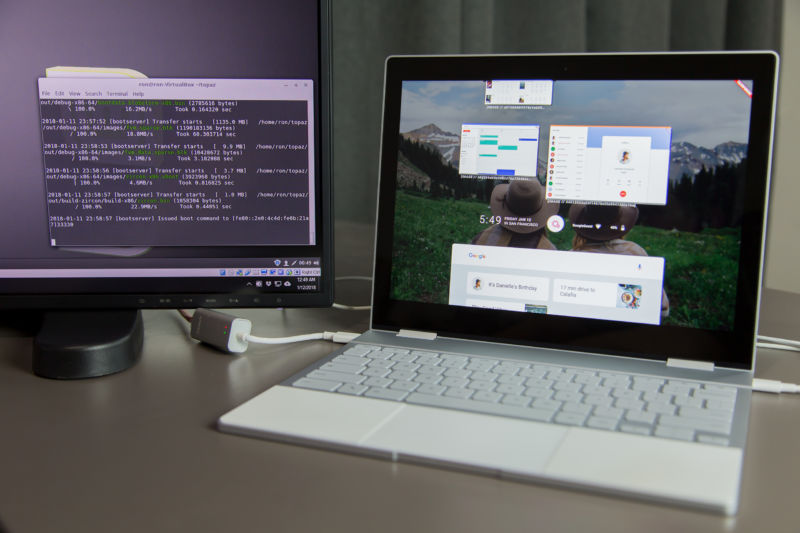
Google is still reeling from the biggest layoff in company history last Friday. Earlier cost cuts over the past six months have resulted in several projects being shut down or deprioritized at Google, and it's hard to fire 12,000 people without some additional projects taking a hit. The New York Times has a report about which divisions are being hit the hardest, and a big one is Google's future OS development group, Fuchsia.
While the overall company cut 6 percent of its employees, the Times pointed out that Fuchsia saw an outsize 16 percent of the 400-person staff take a hit. While it's not clear what that means for the future of the division, the future of Fuchsia's division has never really been clear.
Fuchsia has been a continuous mystery inside Google since it first saw widespread press coverage in 2017. Google rarely officially talks about it, leaving mostly rumors and Github documentation for figuring out what's going on. The OS isn't a small project, though—it's not even based on Linux, opting instead to use a custom, in-house kernel, so Google really is building an entire OS from scratch. Google actually ships the OS today to consumers in its Nest smart displays, where it replaced the older Cast OS. The in-place operating system swap was completely invisible to consumers compared to the old OS, came with zero benefits, and was never officially announced or promoted. There's not much you can do with it on a locked-down smart display, so even after shipping, Fuchsia is still a mystery.
The biggest questions surrounding Fuchsia are: "Why does this exist, and what are its goals?" Is Fuchsia an eventual replacement for Android or Chrome OS? Around 2018, when we first got Fuchsia running on a Pixelbook, the source code documentation for the custom kernel said it "targets modern phones and modern personal computers with fast processors," which certainly made it sound like an Android and/or Chrome OS successor being built for flagship devices. That early codebase also included graphical user interfaces for PCs and phones, further driving home that this was a consumer OS. After Fuchsia got some initial publicity, it removed its public interface code.
2018 also saw a foundational Bloomberg report calling Fuchsia "a successor to Android," and saying the team planned to launch on smart speakers in 2021 (which was spot on) and would later move into phones and laptops in 2023. Even the name "Fuchsia" was a reference to Apple projects some members of the team had been involved with. "Pink" was the codename for a canceled successor to classic Mac OS, and "Purple" was the codename for the iPhone OS. The color Fuchsia is a mix of pink and purple, so this all sounded very ambitious.
reader comments
123